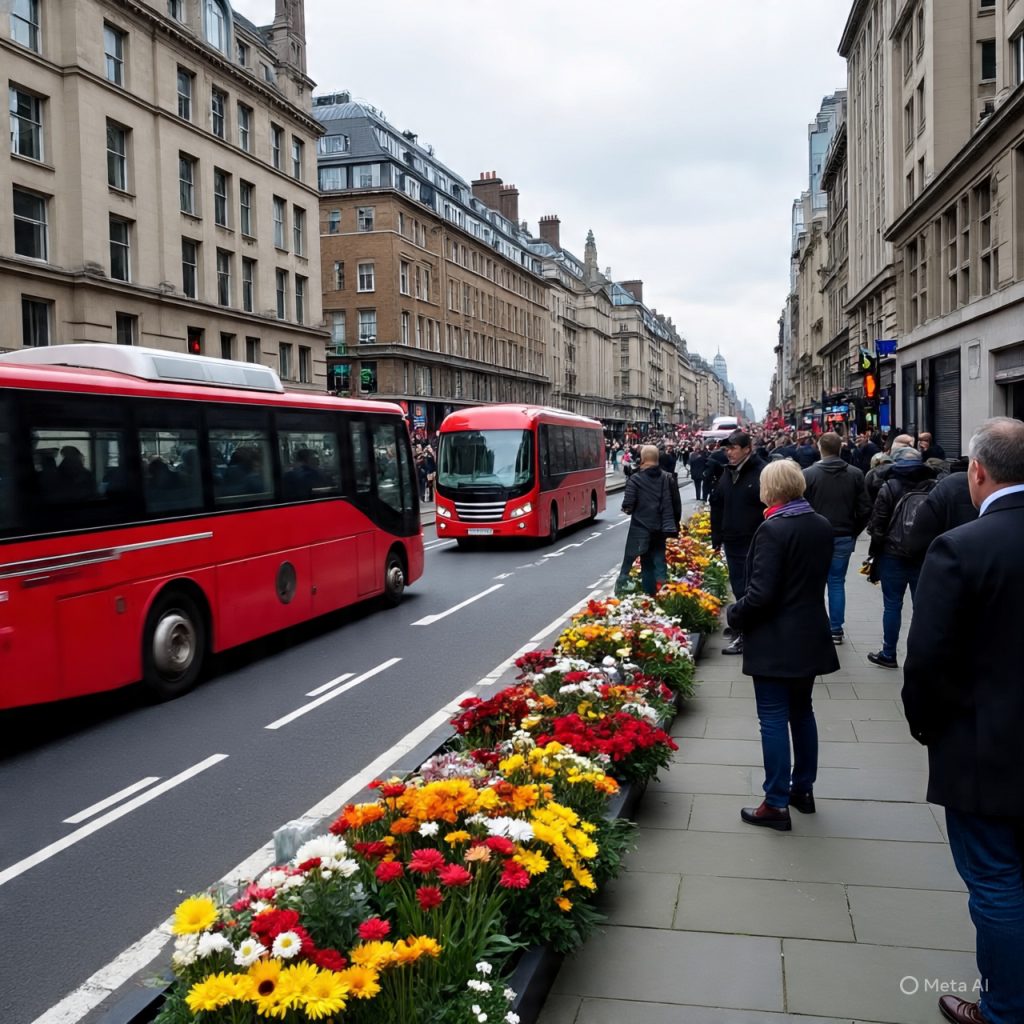Accordingly BBC
Twenty years have passed since the devastating 7 July 2005 bombings that shook London to its core. The coordinated suicide attacks on public transport killed 52 innocent people and left hundreds injured. As the nation remembers the victims, an enduring question remains: Is the UK any safer now than it was then?
This article delves into how far the UK has come in terms of counter-terrorism, what has changed since 7/7, and whether the evolving threats still outpace the capabilities of security services.
Remembering 7/7: A Turning Point for British Counter-Terrorism
The 7/7 attacks were unlike anything the UK had ever seen. Until then, British counter-terrorism had largely been shaped by years of dealing with the Irish Republican Army (IRA), which operated with structured military-like tactics. However, the emergence of global jihadist networks, like al-Qaeda, presented a new, more decentralized threat that intelligence agencies were ill-equipped to manage.
On that fateful day in 2005, four British-born suicide bombers detonated explosives on three Tube trains and a double-decker bus during the morning rush hour. The attack not only marked the deadliest act of terrorism on British soil since Lockerbie but also revealed glaring shortcomings in the UK’s intelligence infrastructure.
Missed Opportunities: Surveillance and the Lead-Up to the Attacks
Years before the attack, there were multiple missed opportunities to identify the ringleader, Mohammad Sidique Khan. Surveillance images from as early as 2001 show him at an al-Qaeda-associated training camp in the Lake District. By 2004, he was again observed meeting with known bomb plotters outside London.
Despite this, Khan was never deemed a top priority. He was trailed back to Leeds by MI5, but his identity and potential threat level were not acted upon aggressively. The inability to connect these dots in time proved to be one of the most significant failures in British intelligence history.
As Peter Clarke, the former head of counter-terrorism policing, bluntly stated:
“I haven’t spoken to anybody who was involved in either counter-terrorism or in the intelligence agencies, who don’t regard it as a failure. Of course it was.”
From Failure to Reform: The Post-7/7 Overhaul of MI5 and Police Coordination
In the aftermath, the UK overhauled its entire approach to counter-terrorism:
1. Enhanced Intelligence Sharing
Before 7/7, MI5 and police forces operated somewhat in silos. Post-attack, intelligence-sharing protocols were streamlined to prevent crucial information from falling through the cracks.
2. Improved Surveillance and Triage
Agencies developed a more refined system for prioritizing which “subjects of interest” deserved more scrutiny. This new “triage” process enabled faster decision-making and more effective resource deployment.
3. Increased Funding and Legal Powers
Substantial investment flowed into MI5 and counter-terrorism units. Parliament also introduced the Terrorism Act 2006, creating new offenses such as “preparation of terrorist acts,” which allowed law enforcement to intervene earlier in a plot’s life cycle.
Operation Overt: A Post-7/7 Success Story
Perhaps the best example of the new system in action was Operation Overt in 2006. Intelligence agents uncovered a group plotting to bring down transatlantic flights using liquid explosives disguised as soft drinks.
This time, intelligence and surveillance worked seamlessly. Authorities gathered video evidence of the suspects recording martyrdom messages and preparing the bombs. The plot was disrupted before the devices were completed, saving countless lives.
The Threat Has Evolved: From Jihadists to Lone Actors and Beyond
While al-Qaeda inspired 7/7, today’s terror landscape is more complex. MI5 now monitors threats not only from radical Islamist groups but also from:
- Lone-wolf attackers radicalized online
- Far-right extremists
- State-sponsored actors (especially from hostile countries)
Lord Jonathan Evans, MI5’s director at the time, noted that the geographical focus of intelligence operations has shifted as well.
“We had always been predominantly…a London-based organisation. But when you recognise that the 7/7 bombers came down from Yorkshire, the threat was national.”
This led to the creation of regional intelligence units, improving coordination across cities like Birmingham, Manchester, and Glasgow.
Are We Safer Now?
In many measurable ways, yes. The UK now boasts one of the most advanced counter-terrorism infrastructures in the world. Key achievements include:
- Dozens of major plots thwarted since 2005
- Real-time coordination between MI5, MI6, GCHQ, and police
- Legal mechanisms to arrest suspects before attacks occur
- Increased awareness and community engagement in preventing radicalization
However, some argue that the threats have become more unpredictable. The tools and powers exist, but radicalization via encrypted apps and lone actors with no direct contact with terror groups make detection more difficult.
Public Awareness and Resilience
Another crucial aspect of improved safety is public education. Campaigns like “See It. Say It. Sorted.” encourage citizens to report suspicious behavior. Emergency services have also enhanced their rapid response capabilities.
Moreover, UK society has become more resilient. While fear remains, the ability to carry on and not let terrorism define national life has been one of the most potent weapons against extremism.
Conclusion
So, is the UK safer 20 years after 7/7? The short answer is yes, but with caution. The landscape of terrorism has shifted dramatically, and while the UK has adapted effectively, new and emerging threats continue to challenge security services.
The lessons from 7/7—about vigilance, intelligence sharing, and the cost of underestimating a threat—remain as relevant today as they were in 2005. The question is no longer whether attacks can be stopped, but whether agencies can keep up with the evolving nature of extremism in an increasingly complex world.
FAQs
Who was responsible for the 7/7 attacks?
Four British-born men—Mohammad Sidique Khan, Shehzad Tanweer, Hasib Hussain, and Germaine Lindsay—carried out the suicide bombings on public transport in London.
What has the UK done since 7/7 to improve security?
The UK has introduced new anti-terrorism legislation, increased funding for intelligence agencies, improved information sharing, and established regional intelligence hubs.
What is Operation Overt?
A 2006 counter-terrorism operation that successfully disrupted a plot to bomb transatlantic flights using liquid explosives disguised as soft drinks.
Are terrorist threats still present in the UK?
Yes, though different in nature. Threats now include lone-wolf actors, online radicalization, far-right extremism, and state-sponsored interference.
Can another 7/7 happen again?
While the risk can never be reduced to zero, the UK’s modern counter-terrorism efforts make such large-scale, coordinated attacks far more difficult to execute.

Theo Louse
I am Theo Louse. My skills are dedicated to the field of technology information and try to make daily lives more enjoyable. With more than 12 years of experience with BM, we are particularly famous for 100% self-developed ideas. Over these years, we have worked to make everyday life more convenient for the fast-paced world we live in.

